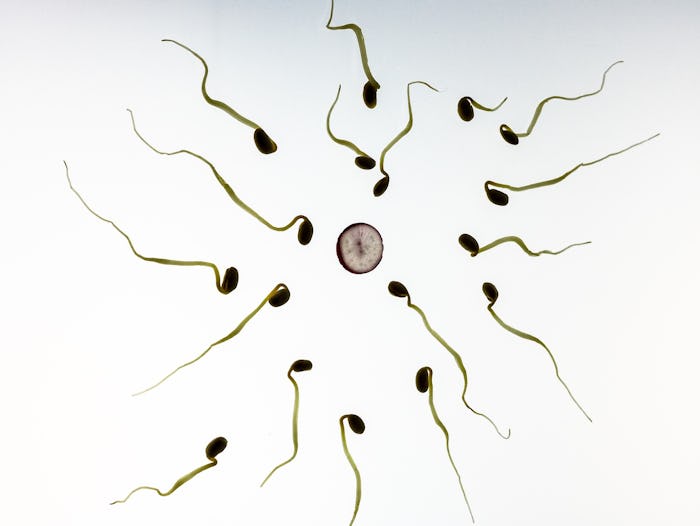Life

How Much Sperm Is Needed To Fertilize An Egg? Fewer Than You Might Think
Figuring out the probability of getting pregnant can be daunting, regardless of whether you're working on getting pregnant or working on preventing it. Learning the ins and outs of fertility can be daunting, no matter what your situation. When it comes to male fertility, one of the biggest questions asked is, how much sperm is needed to fertilize an egg?
The answer is quite simple: according to Dr. Charles Lindemenn of Oakland University, it takes just one sperm to fertilize a woman's egg. The next question is, if it only takes one sperm to fertilize an egg, then why do men release millions of sperm upon ejaculation? This is because, for every sperm that completes the trip to the egg, there are millions that don't survive the trip.
The path that sperm takes from ejaculation to the egg is a long and difficult journey. According to Lindemenn it takes between 5 and 68 minutes for semen to arrive in the fallopian tube. This is because semen must travel from the vagina to the fallopian tubes, which is no easy feat. When the sperm reaches the cervix, they split ways and go to separate fallopian tubes. But only one fallopian tube has a fertile egg at any given time. So even when a good number of sperm do reach the fallopian tubes, half of them are left without an egg to fertilize. And when sperm do reach the fertile egg, the egg is usually covered by a thick layer of cells called the corona radiata that serve as a wall to prevent sperm from getting to the egg.
Healthy sperm cells contain enzymes that help break down this barrier. It usually takes many sperm to break down the corona radiata in order to let one sperm get through to the egg. According to WebMD, this is nature's way of making sure that only the healthiest sperm fertilize a woman's egg, to give the best chance of a healthy pregnancy and baby.
Lindemenn goes on to explain that men whose concentration of sperm is below 20 million are generally considered less fertile, because of the small fraction of sperm that actually complete the trip from ejaculation to the egg. The number of sperm that successfully arrive at the egg is actually very small, according to Lindemenn. So even though it takes just one sperm to fertilize an egg, it often takes millions of them to complete the entire process.